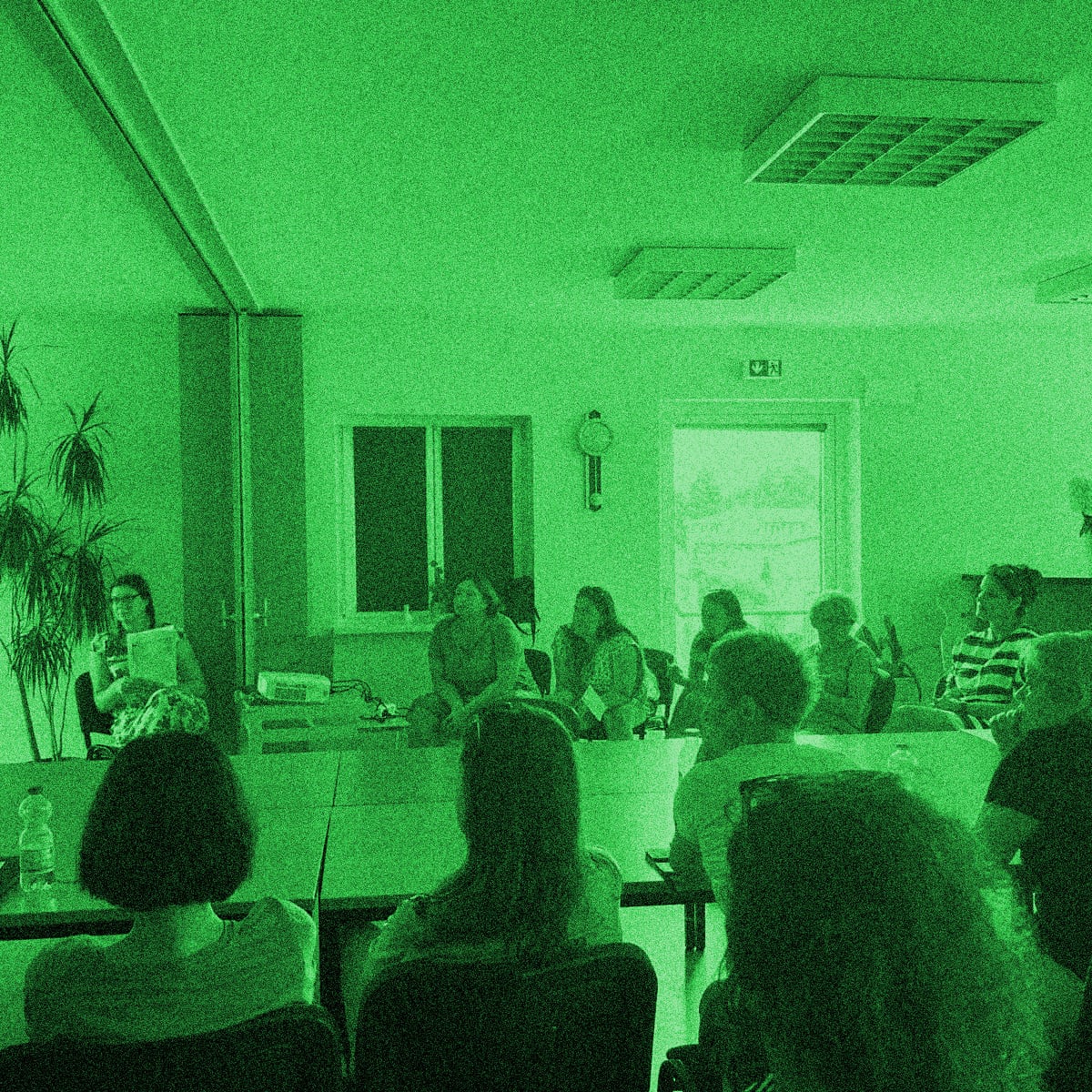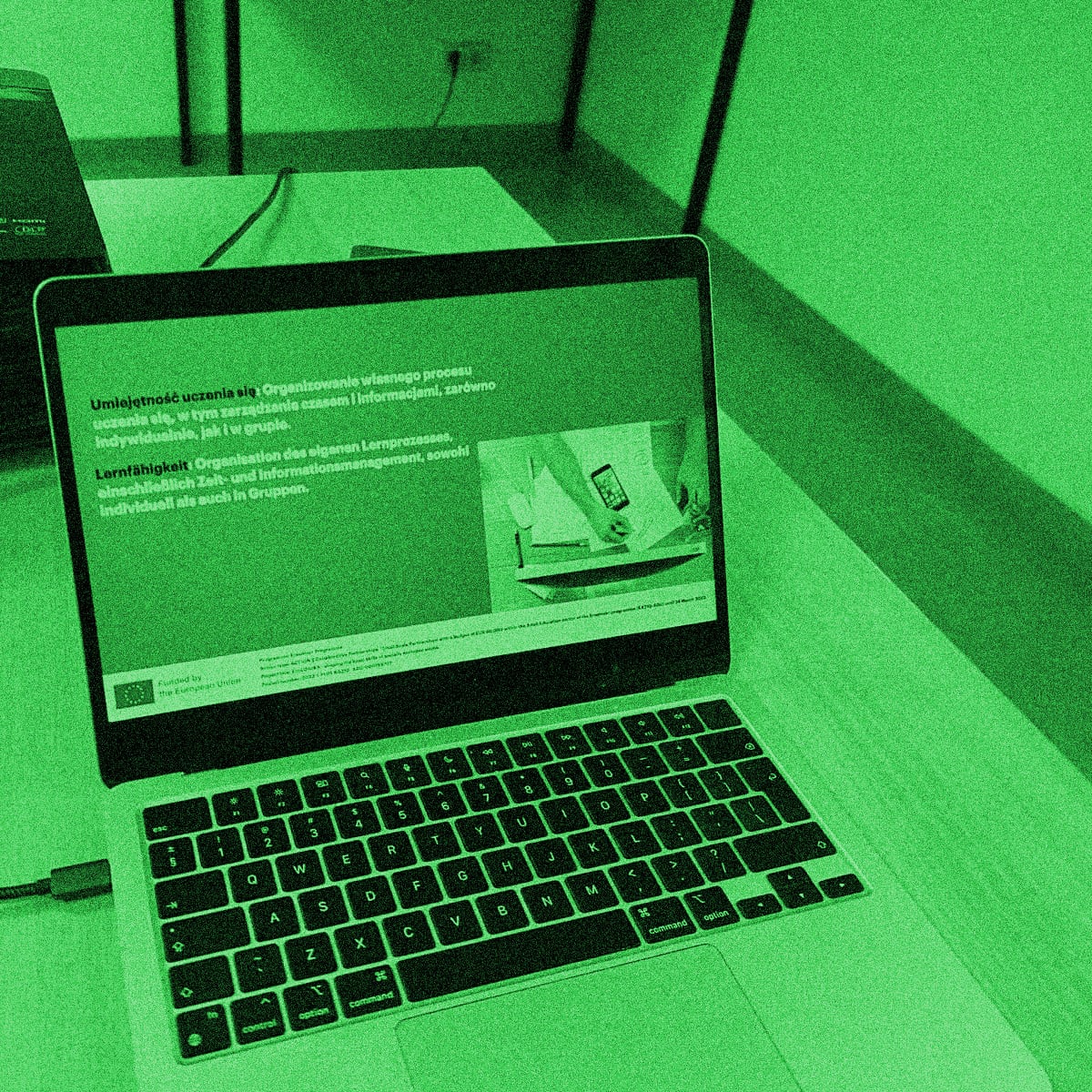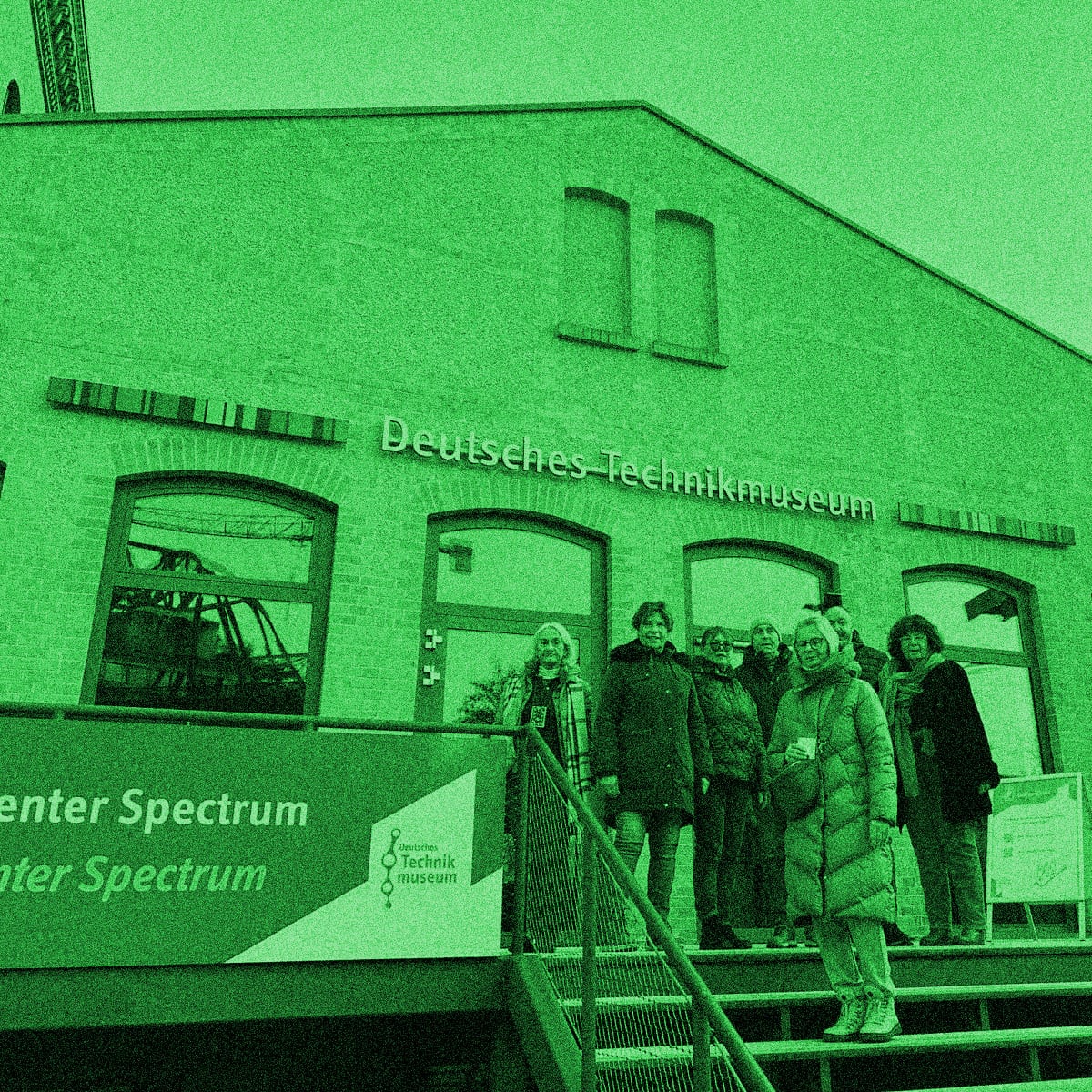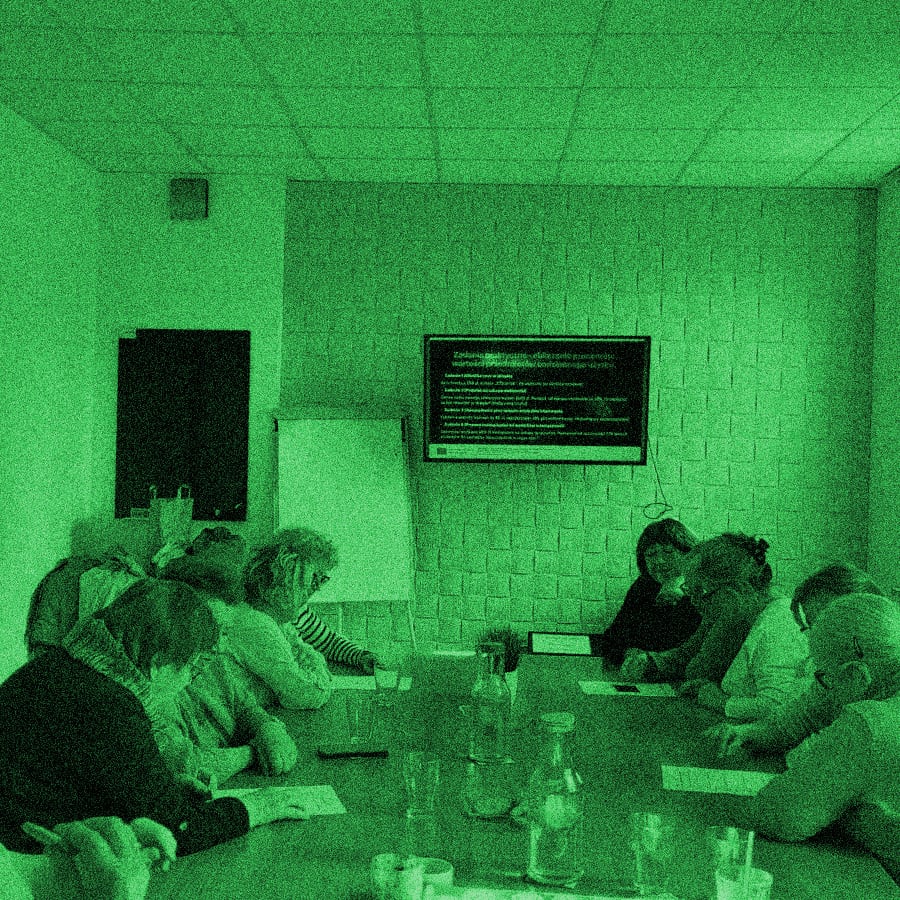
EcoLOGIKA
Shaping the basic skills of socially excluded adults.
The activity was fully implemented as outlined in the project grant application. The transnational mobility involved 12 trainers working with senior adults, with 6 participants from each partner organization. The activity took place on October 10-15, 2023, in Bad Freienwalde, following a structured agenda that facilitated team integration, mutual learning, and collaborative development of the educational script "EcoLOGIKA."
During these days, the focus was on developing the "EcoLOGIKA" script, a practical manual of best practices, through various collaborative activities:
The final day involved summarizing the work on the "EcoLOGIKA" script:
This day also saw the final assignment of responsibilities between partners and concluded with evaluations of the mobility program, internal certificate presentations, and discussions on future directions.
The target group comprised 12 senior trainers as specified in the project application:
All participants work in adult education, focusing on basic mathematical and digital skills for seniors. The aim was to initiate work on the script (the project's intellectual output) and facilitate experience exchange in adult education, especially for seniors with basic mathematical skill needs.
This activity significantly contributed to achieving the project's goals as defined in the grant application, particularly through the mobility experience for the 12 trainers:
As proof of activity completion, attendance records and signed internal certificates by trainers are included in this report (Europass Mobility documents will be issued post-project).

The content of the "EcoLOGICZNI" script was divided into three main sections to provide comprehensive support for educators working with adults who have low mathematical and numeracy skills while introducing topics related to ecological awareness.
The introduction opens with insights from an analysis conducted by project partners, examining the level of basic mathematical skills among adult learners. This section establishes a context for the challenges seniors face in mathematics and highlights the importance of support to help them develop these skills.
The main content section includes 12 detailed workshop scenarios that combine mathematical topics with environmental themes, offering educators practical tools for working with adults with low numeracy skills. Each scenario is designed to reflect participants' daily lives, enhancing their understanding of math through an environmental lens. Examples include:
The summary section presents key findings from the scaling process, featuring insights from workshops with 100 senior participants. It provides educators with recommendations for effectively tailoring content to adult learners' needs and highlights feedback from seniors regarding the practical application of the knowledge gained.
The development of the "EcoLOGICZNI" script involved a team of skilled professionals from the applicant and transnational partner organizations. From the applicant organization, six educators participated: three trainers specializing in math education, two in digital skills, and one expert in practical economics. All team members had extensive experience working with seniors, especially in developing basic skills, enabling them to tailor the script's content to adults with limited numeracy skills. Their input ensured that the script not only delivered essential knowledge but also helped seniors understand practical applications of math in daily life, sparking interest in ecological topics.
On the partner organization's side, six educators specializing in ecological education contributed to the script. These educators had substantial experience in eco-focused projects in settings like gardens, woodshops, and community spaces, bringing valuable, practical examples to the script on sustainable living. Their role was to enrich the content with ecology-related topics and support the applicant team in merging mathematical knowledge with ecological awareness. Through this collaboration, the "EcoLOGICZNI" script became a well-rounded educational resource for adult educators, aiding in the development of mathematical skills while fostering pro-environmental attitudes.

Open-licensed publications that will help in non-formal youth education.
A total of 16 seniors participated in this transnational mobility—eight adults with limited basic mathematical skills from each partner organization. The activity was carried out between December 12 and December 17, 2023, in Bad Freienwalde, Germany, over a six-day period.
The day began with pair exercises as a warm-up. Then, participants engaged in brainstorming on "how I use math in everyday life." A presentation followed on the script (the project's intellectual output), addressing the issue of low numeracy skills among older adults. A lecture on "sustainability for seniors" set the stage for the group workshops, which included:
A warm-up activity featured a city game in Bad Freienwalde with a math theme, followed by task evaluations and discussions. Group workshops included:
Participants visited the Museum of Technology in Berlin for a workshop, followed by a two-hour guided tour of Berlin. In the afternoon, group workshops included:
The final two days involved practical group workshops, working through additional scenarios from the script, with daily evaluations and a final assessment of learning outcomes to conclude the mobility.
The international mobility took place in mid-December 2023, targeting seniors with limited basic mathematical skills. Sixteen seniors—eight from each country, all aged 60+—participated in the program. The Polish participants included Barbara Ebertowska, Danuta Rembielińska, Hanna Kuroch, Joanna Szuleta, Julia Gałek, Maria Koko, Piotr Rembieliński, and Raisa Deklewa, while the German group included Angelika Kühn, Bärbel Sand, Dagmar Bergmann, Eveline Quast, Elke Hädicke, Marion Brunnert, Monika Herzberg, and Simone Köpke-Stehle. Four project staff, two from each organization, accompanied the seniors.
The mobility aimed to test and implement the educational content developed in the project's script, which included mathematical and essential life skills content for seniors. This provided participants with opportunities to expand their mathematical skills and engage in hands-on activities that fostered new skills and deepened their understanding of partner country cultures. The international exchange allowed Polish and German seniors to gain insights into mathematical and cultural aspects of everyday life in each other's countries.
Due to the added appeal of cross-cultural holiday traditions, the mobility was moved from the originally scheduled January 2024 to December 2023.
The mobility played a key role in achieving the "EcoLOGIKA" project objectives by providing the first opportunity to field-test sections of the developed "EcoLOGICZNI" script. Through workshops, seniors were introduced to the educational content of the script, which enabled an assessment of its usability, educational quality, and relevance to the target audience.
Workshops also served as a verification process, evaluating the clarity and usefulness of the content for participants, as well as its accessibility for older adults. Analysis of pre- and post-test results allowed assessment of knowledge gains in core math competencies and ecological awareness, aligning with project objectives. The feedback gathered provided essential insights to tailor the material further to seniors' needs, thereby enhancing its quality.
Additionally, the mobility advanced the goal of developing participants' core competencies in mathematics and ecological awareness. The workshops equipped seniors with foundational math concepts and ecological topics, supporting skills essential for everyday life. This made the mobility an effective tool for reaching the educational goals of the project and enhancing the practical value of the "EcoLOGICZNI" script.
Through participation in the mobility, the 16 seniors gained knowledge and skills in:

The second phase of testing the educational offer for adults with low basic math skills involved a series of local workshops attended by 100 seniors, 50 from each partner country. These workshops, conducted from January to June 2024, served as the final test for the "EcoLOGICZNI" script, allowing assessment of its educational effectiveness and supporting the development of participants' foundational math skills.
Each partner country organized a series of 10 three-hour workshops, following scenarios from the "EcoLOGICZNI" publication. Every workshop had a structured format, beginning with a theoretical introduction to a specific mathematical concept, such as understanding the median, followed by hands-on exercises. These exercises were rooted in real-life environmental issues. For instance, participants calculated the amount of water "wasted" by not turning off the tap while brushing their teeth, then compared it to the volume of water in the body, practicing percentage calculations, arithmetic, and unit conversions. Each workshop concluded with a summary and a survey, which provided data for refining the content.
The workshop topics, aligned with the script, included:
The workshops enabled participants to develop fundamental mathematical skills, which was one of the main goals of the project.
The activities involved 100 seniors—50 participants from Gdynia and the Wejherowo district, and 50 from Bad Freienwalde. Recruitment took place at the beginning of January 2024, based on criteria designed to attract seniors with low basic math skills and limited knowledge of ecology and sustainable development.
Participants were required to have basic or secondary education or report low foundational math skills and challenges with arithmetic. Preference was given to individuals with disabilities, rural backgrounds, or low income or single-household status, supporting the project's focus on inclusion and diversity. Most recruited participants were women, reflecting the general demographics of regular program attendees at the partner organizations.
The selected seniors were divided into 10-person groups to participate in the 12-workshop series, totaling 36 hours of educational support per person. Each participant had the chance to enhance their math skills and expand their understanding of ecology and sustainable living, addressing basic competencies essential for everyday life.
This activity significantly contributed to developing the final version of the "EcoLOGICZNI" script, resulting in a publication that meets beneficiaries' real needs while being engaging and educationally effective. The re-scaling process, conducted with a large group of seniors, enabled the collection of extensive, reliable data, ensuring the credibility of conclusions drawn from the analysis.
At the end of each workshop, seniors completed detailed surveys, which provided essential feedback on the content and its potential for adjustment. The feedback and suggestions gathered allowed for modifications that made the script better suited to the target group. This process ultimately produced a publication with the potential to reach and positively impact actual beneficiaries, enhancing their knowledge and skills.
After the workshops concluded, teams from Poland and Germany reconvened virtually to discuss the scaling results. Based on shared analyses and insights, additional improvements were made to the "EcoLOGICZNI" script, aligning it more closely with the educational needs of seniors and increasing its overall teaching effectiveness. This activity played a vital role in achieving project objectives, particularly in creating a credible, effective, and necessary educational tool.
As a result of participating in the workshops, the 100 seniors developed knowledge and skills in several areas:
These competencies were verified using pre- and post-workshop surveys. In recognition of their accomplishments, participants received internal certificates detailing the knowledge and skills they acquired.

A couple of photos showing the activities during our mobility.